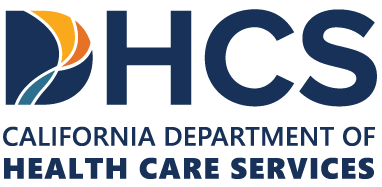Dialectical Behavior Therapy (DBT) for Addiction Recovery
Addiction extends beyond physical dependence, frequently stemming from emotional distress, unresolved trauma, and difficulty managing stress or relationships. Many people turn to drugs or alcohol as a way to cope with overpowering emotions, only to find themselves trapped in a cycle of self-destruction.
DBT (dialectical behavior therapy) is an evidence-based approach that helps people develop emotional regulation, distress tolerance, and interpersonal skills—all of which are central to long-term recovery. At The Retreat, we integrate DBT into our addiction treatment programs to help individuals build resilience, self-awareness, and healthier ways to cope without turning to substances.
If you have struggled with impulsive behaviors, mood swings, or difficulty handling stress, DBT can give you the skills you need to take back control of your life.

What is DBT (Dialectical Behavior Therapy)?
DBT was originally developed to treat BPD (borderline personality disorder) but has since been recognized as a highly effective treatment for addiction and other mental health disorders. It is based on the idea that two things can be true at the same time:
- You can accept yourself for who you are right now.
- You can work toward meaningful change.
This balance of acceptance and growth is at the core of DBT. By helping people regulate their emotions, tolerate distress, and develop healthy coping mechanisms, DBT reduces the risk of relapse and strengthens long-term recovery.
Why is DBT Effective for Addiction Recovery?
Many people struggling with addictions confront intense emotions, impulsivity, and difficulty managing stress or relationships. DBT directly addresses these challenges, making it a beneficial tool for long-term sobriety.
The Benefits of DBT in Addiction Treatment
DBT’s core advantages include:
- Helps manage intense emotions: Many individuals in recovery experience anxiety, depression, guilt, and shame. DBT teaches techniques to process emotions without turning to drugs or alcohol.
- Reduces impulsive behaviors: Addiction often involves acting on impulse without thinking of long-term consequences. DBT helps individuals pause, assess situations, and make healthier choices.
- Teaches coping skills for stress and triggers: DBT provides strategies to handle cravings, stress, and emotional pain without resorting to substance use. People learn self-soothing techniques that make relapse less likely.
- Improves relationships and communication: Many people with addictions struggle with strained relationships due to dishonesty, isolation, or conflict. DBT teaches healthy communication, boundary-setting, and conflict-resolution skills.
By addressing the emotional and behavioral challenges that fuel addiction, DBT helps people create a stable, fulfilling life in recovery.
The Four Core Components of DBT
At The Retreat, we incorporate the four key components of DBT into our addiction treatment programs.
1) Mindfulness – staying present in the moment
Many individuals in addiction dwell on past mistakes or fear the future, which can lead to anxiety, depression, and relapse. Mindfulness teaches them to:
- Focus on the present moment instead of getting lost in regrets or worries.
- Observe thoughts and emotions without judgment.
- Respond to stress and triggers with clarity and self-awareness.

2) Distress tolerance – coping with pain without making it worse
Life is full of stress and discomfort, and for many individuals in addiction, substances became their way of avoiding pain. DBT helps people develop healthier coping strategies, such as:
- Self-soothing techniques like deep breathing, grounding exercises, and sensory awareness.
- Radical acceptance, learning to acknowledge difficult emotions instead of trying to escape them.
- Crisis survival skills, helping individuals get through tough moments without making impulsive choices.
3) Emotional regulation – learning to control intense feelings
Many people struggling with addiction experience extreme mood swings. DBT helps them:
- Identify and understand what triggers emotional reactions.
- Reduce emotional vulnerability and reactivity.
- Develop healthy ways to express and process emotions without turning to substances.
4) Interpersonal effectiveness – building stronger relationships
Addiction often damages relationships with family, friends, and loved ones. DBT helps individuals rebuild and maintain healthy, supportive connections by teaching:
- How to communicate needs and boundaries effectively.
- Strategies to resolve conflicts without anger or avoidance.
- Skills for building trust and repairing relationships.
By improving self-awareness, emotional resilience, and social skills, those engaged in DBT become more confident in handling life’s challenges without drugs or alcohol.
How DBT Supports Relapse Prevention
One of the greatest strengths of DBT is its effectiveness in preventing relapse. Many individuals in recovery face triggers, cravings, and high-risk situations, and without the right skills, relapse can feel inevitable.
DBT helps individuals:
- Recognize warning signs of relapse before it happens.
- Use distress tolerance skills to ride out cravings without giving in.
- Develop problem-solving techniques for handling high-risk situations.
- Strengthen emotional regulation to prevent self-sabotaging behaviors.
At The Retreat, we ensure that individuals leave treatment with practical DBT strategies that support long-term sobriety and personal growth.

Who Benefits from DBT?
DBT is particularly effective for individuals who:
- Struggle with emotional instability or impulsive behaviors.
- Have difficulty managing stress, anxiety, or depression.
- Use drugs or alcohol to cope with overwhelming emotions.
- Have strained relationships due to addiction.
- Are committed to learning healthier ways to handle life’s challenges.
If addiction has made life feel unmanageable, DBT can help you regain control and rebuild your future.
Start Your Journey with DBT at The Retreat
Dialectical behavior therapy is not just about stopping substance use—it’s about creating a life worth living. Recovery demands more than willpower. People need to learn new skills, build resilience, and find healthier ways to cope. At The Retreat, we offer expert-led DBT programs as part of our comprehensive addiction treatment. Whether you are just beginning your recovery or looking for additional support, we are here to help.
Call The Retreat today to learn how DBT can transform your recovery journey.






